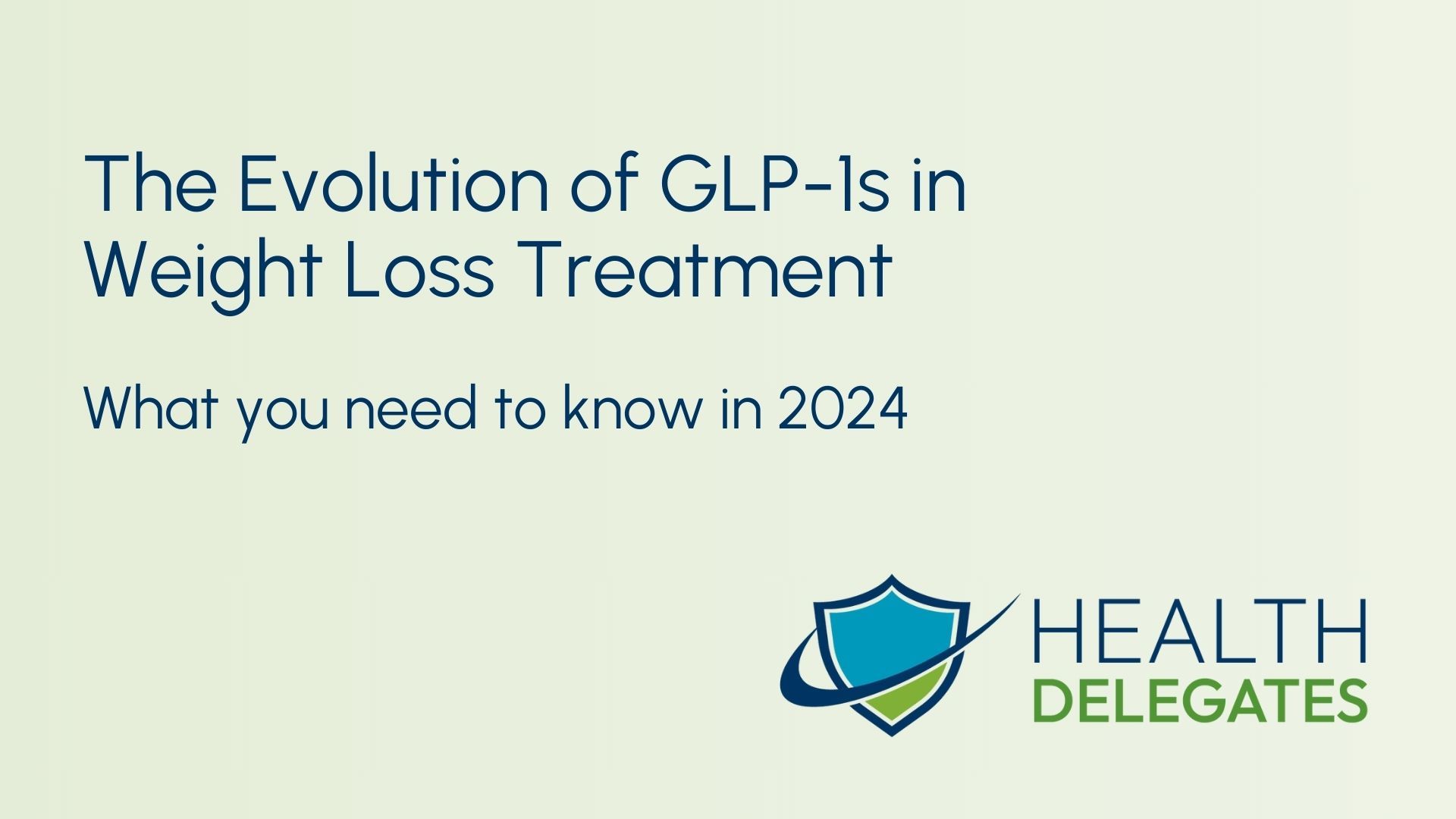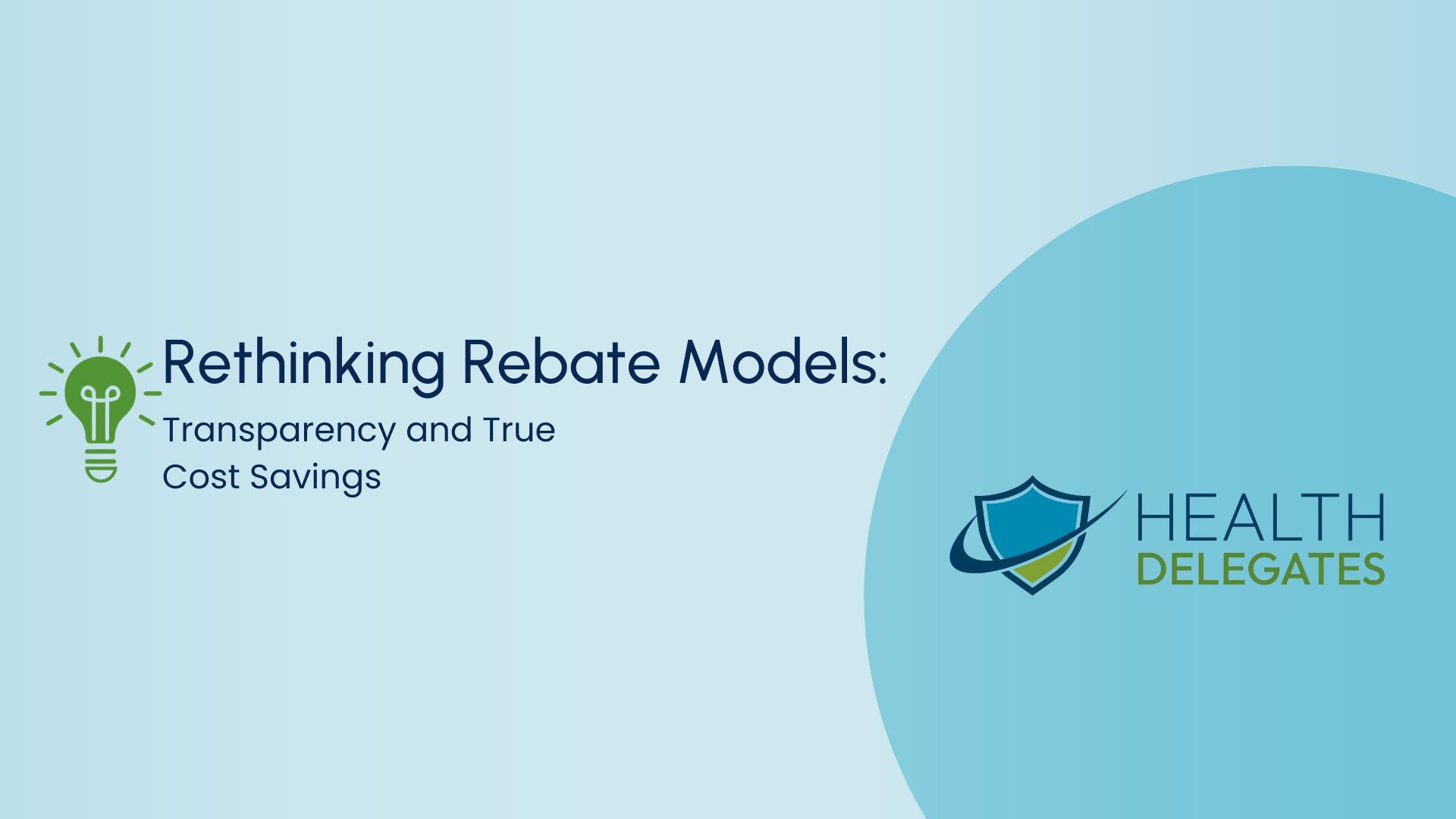The Evolution of GLP-1s in Weight Loss Treatment

The landscape of weight loss treatments has grown and evolved in the past few decades. Historically, options were limited, often focusing on lifestyle changes, surgical interventions, or medications with a modest efficacy and safety profile. However, recent years have seen a paradigm shift, particularly with the advent of GLP-1 (glucagon-like peptide-1) agonists. These treatments not only offer improved efficacy and safety but also align with a deeper understanding of obesity as a complex, chronic medical condition rather than a lifestyle issue packed with stigma and shame. This post explores the growth of GLP-1s, the introduction of new drugs like Zepbound, and the broader impacts of weight loss on health plans and employers. It also examines the prevailing trends in weight management in 2024 and demonstrates how Health Delegates can help you navigate formularies and rebates associated with GLP-1s.
Historical Context of Weight Loss Treatment Coverage
The journey of weight loss treatments has been fraught with challenges and skepticism, particularly regarding coverage by health insurance plans. Traditionally, many insurers were reluctant to cover weight loss medications, viewing obesity as a lifestyle choice rather than a medical condition. This perception led to limited access to effective treatments for many individuals struggling with obesity. Over time, with growing evidence of the biological underpinnings of obesity and the efficacy of new treatment options, there has been a gradual shift in this stance.
Expansion of the GLP-1 Market to Meet Demand
GLP-1 agonists have revolutionized weight loss treatment due to their efficacy and safety profile. This market is set for significant expansion with key players like Novo Nordisk, Roche, Pfizer, Amgen, and Merck intensifying efforts on GLP-1 related therapies. For instance, Novo Nordisk's data indicating high retention rates (40%) for Wegovy users underscores the drug's effectiveness and patient adherence. This retention rate is crucial, considering the chronic nature of obesity and the need for long-term, sustainable treatment options. In addition to Wegovy, some of the other GLP-1 agonists currently prescribed for weight loss include: Trulicity, Byetta, Ozempic, Victoza, and, most recently, Zepbound.
Zepbound entered the market with a staggering 25,000 new prescriptions weekly by the end of 2023 and has quickly become a significant contributor to the evolving landscape of weight loss treatment. While some manufactures are planning expansion to keep up with the demand, health plans excluding weight loss drugs from their formularies may put a damper on that growth.
Weight Loss Treatment Shift Forces Formulary Decisions
While 40% of commercial plans in the United States currently cover GLP-1 products for obesity, another 19% of plans are considering coverage. While this sounds promising, drug benefit consultants who said they don't expect many employers to start covering the drugs since the plans cannot afford it. Some plans are putting restrictions in place, only covering GLP-1 treatment for people who are severely obese, or for those who also participate in a diet and exercise program. Additionally, some plans place limits on how long members can receive the treatment.
The State of North Carolina’s decision to drop new weight loss drug coverage is one example of the financial strain faced by employers and health plans. This move, driven by rising drug costs, is expected to yield considerable savings in rebates but also underscores the escalating challenge of providing effective weight loss treatments within budgetary constraints, a trend that is quickly becoming a growing national public health concern.
Trends in Weight Loss and Health for 2024
As we begin the new year, the influence of GLP-1s is evident in various aspects of weight management, including surgery. Insurers are increasingly covering bariatric surgery, likely as a counterbalance to the high demand and costs associated with GLP-1s. This trend indicates that while GLP-1s present a viable non-surgical route for weight loss, surgery remains a potent alternative, albeit one with higher upfront costs.
Looking ahead, the obesity treatment landscape faces both challenges and opportunities. The rising cost of GLP-1s, coupled with the financial constraints of health plans, poses a
significant hurdle. However, this also opens avenues for innovation in drug development and cost management strategies. We anticipate that the focus will shift toward more cost-effective formulations, potentially including oral GLP-1s, and exploring comprehensive treatment approaches that combine medication with lifestyle changes.
Inform Formulary Decisions with Health Delegates as Your Strategic Partner
The realm of weight loss treatment is undergoing a significant transformation, led by the emergence of GLP-1 agonists. The introduction of new treatments alongside the economic implications for health plans and employers, marks a new era in obesity management.
Health Delegates can help you understand the impact of this changing environment. As your strategic partner, we’ll empower you to make the best formulary decisions for your members without any games or hidden agendas. Contact us today to learn more about our no-nonsense approach to optimizing your plan’s financials without adding to your workload.
Subscribe for Exclusive Industry Insights
Contact Us











